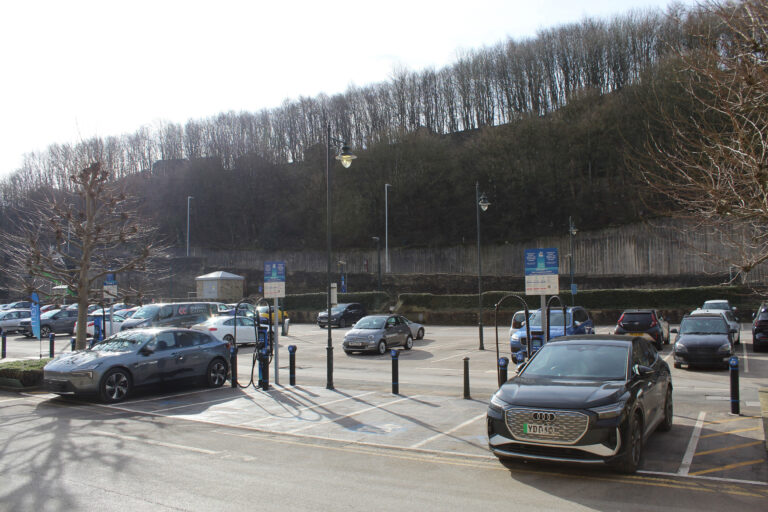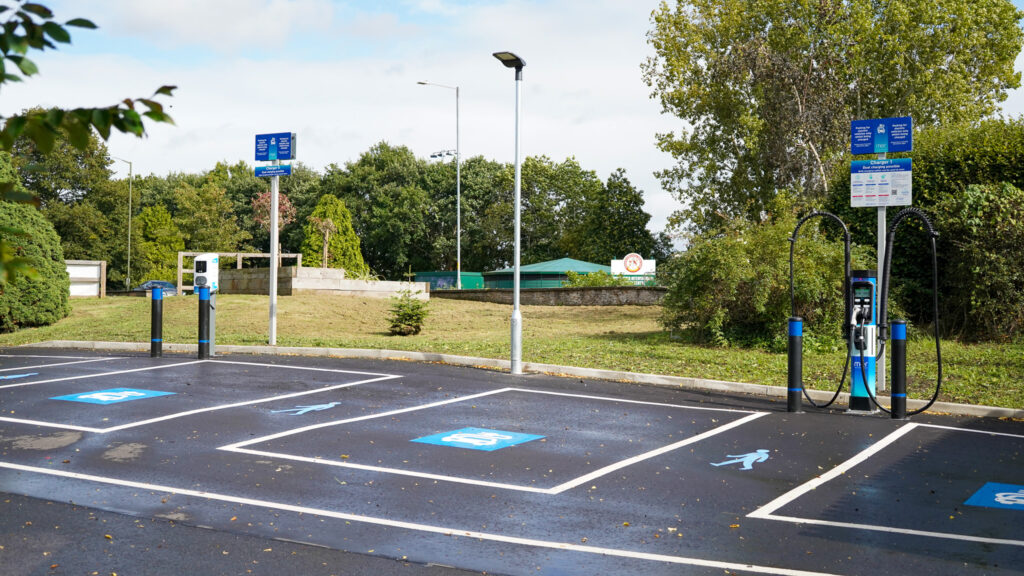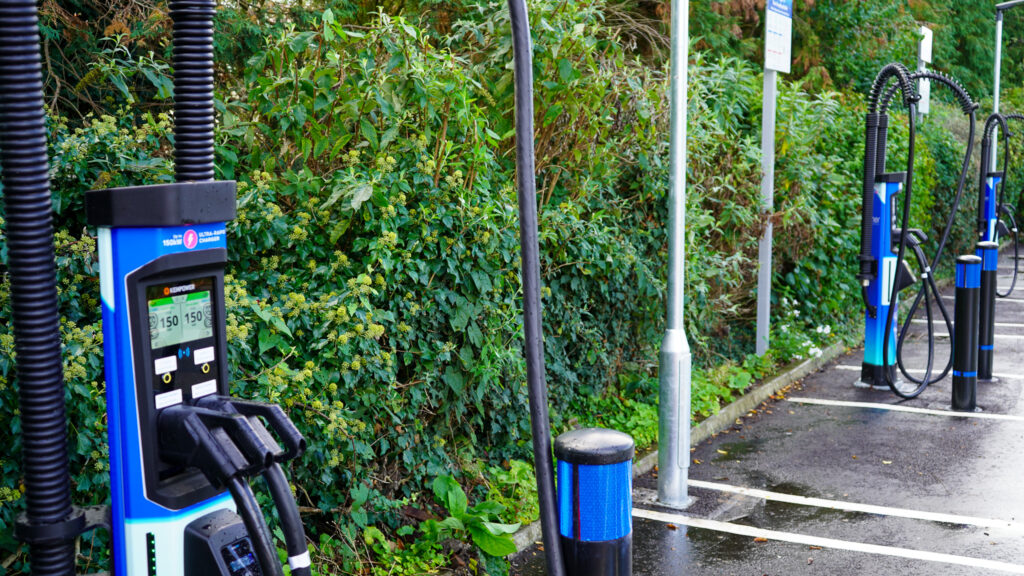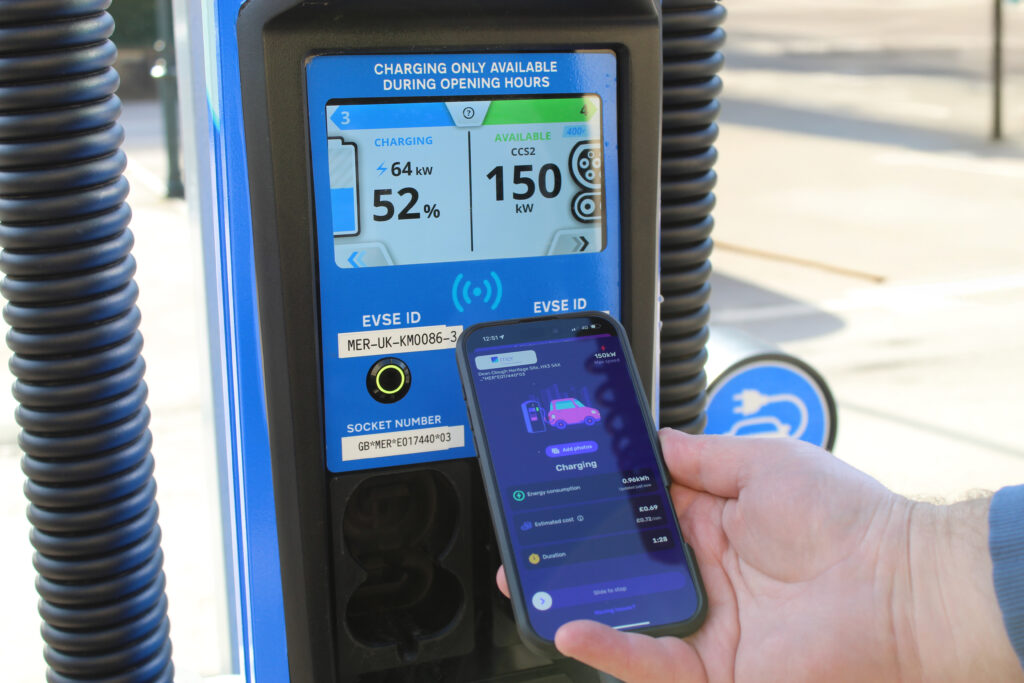If you had said a decade ago that destination retail would be in the position to shape the motoring future of the UK, you might have seen a few eyebrows raised. However, it has become apparent that with the ongoing ZEV mandate, which governs the transition from internal combustion engine (ICE) vehicles to electric, destination retail sites are well-positioned to take advantage of this change.
When the EV charging industry first emerged, driver behaviours were largely modelled on ICE refuelling. Whereby it was expected that they would visit a dedicated location like a petrol station to recharge their car. The problem was that unlike a petrol station, you cannot just ‘fill and go’ in an EV, charging takes around 15 to 20 minutes. This meant that consumers need a pleasant location to wait while their EV charged.
In a recent government survey of the public EV charging network, 47% of all available chargers were located at destinations such as retail parks, shopping centre carparks, corporate offices, leisure centres and educational facilities. The rise of destination chargers in the UK largely stems from two challenges, the fact that a quarter of UK households lack off-street parking, preventing a wider adoption of private chargers. Meanwhile, the public on-street chargers commonly seen in the USA and Canada are only suitable for locations where the streets are wide enough to support them. As anyone who has driven round a large percentage of the UK can attest, our roads and pavements are narrow, and congestion can be a big problem in built-up areas.
These challenges have meant that the provision of robust EV charging infrastructure is best located in places such as retail destinations where there is already the space and amenities to support EV drivers who need to charge their vehicles.
EV chargers: A new form of passive income
In our 2024 customer satisfaction survey we found that 57% of EV drivers would rather charge at a location where they can get some food or go shopping. Very few of them were content to sit and wait in their car or loiter around an empty car park. What this means is that there is a captive audience for enterprising retail destinations to cater towards.
Destination retail has long focused on customer experience, elevating themselves over street-based brick and mortar retail through tailored and unique offerings. The blending of amenities and facilities creates a unique self-contained ecosystem that can be further supplemented by EV charging.
In our experience, driver behaviours surrounding EV charging is far more akin to having a car wash located at a destination. Due to them taking similar amounts of time and the fact that most people who get their car professionally cleaned will often perform other tasks such as shopping.
The addition of EV charging attracts people who might not have initially visited the site but are drawn by the basic need of charging their car, who will then end up incidentally spending money at your site due to the wait time. EV drivers often return to the same location once they know the chargers are reliable and they enjoy their time at the site. Destination retail’s preexisting focus on customer experience solidifies their positioning to take advantage of this fact. The attraction of new customers and returning drivers creates a feedback loop of passive income generation for the site owners and increases revenues for your tenants’ businesses.
By installing EV chargers at your retail destination, you can attract new customers, retain existing ones and increase the value of your property all the while becoming a key part of the UK’s public charging network.
Mer has had great success at attracting new customers to locations such as the historic Dean Clough Mills retail park. In the first three months of the chargers going live enough EV drivers charged their cars at the site to drive around the circumference of the Earth three times. Now consider how many of them became incidental spenders. Download our e-guide for more information about how you can make your retail destination an EV charging hub.
For more information please visit the Mer website






